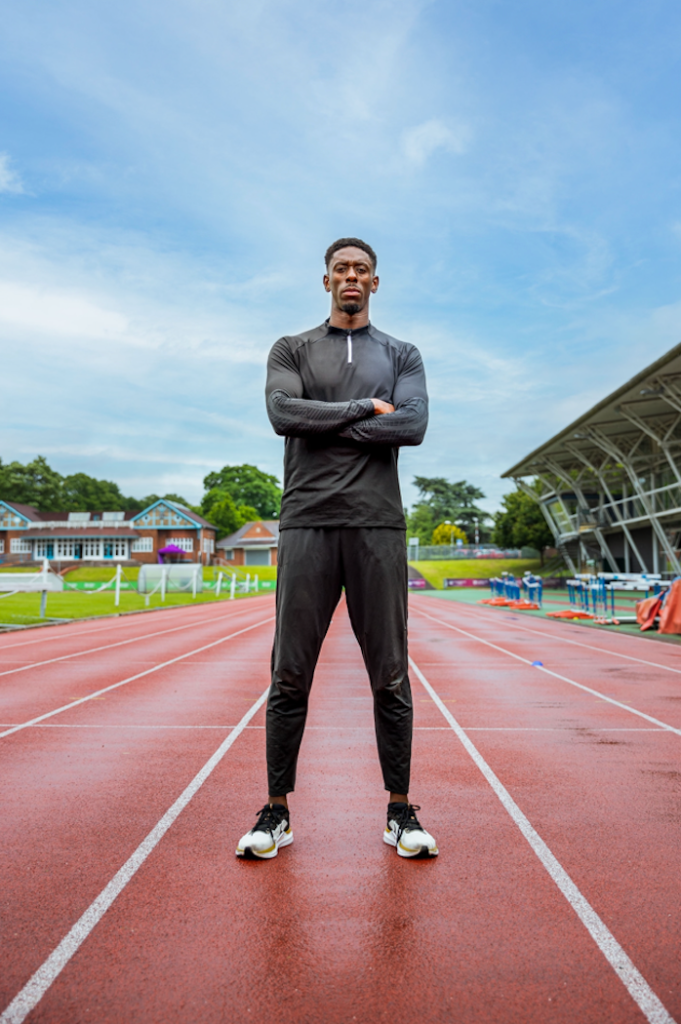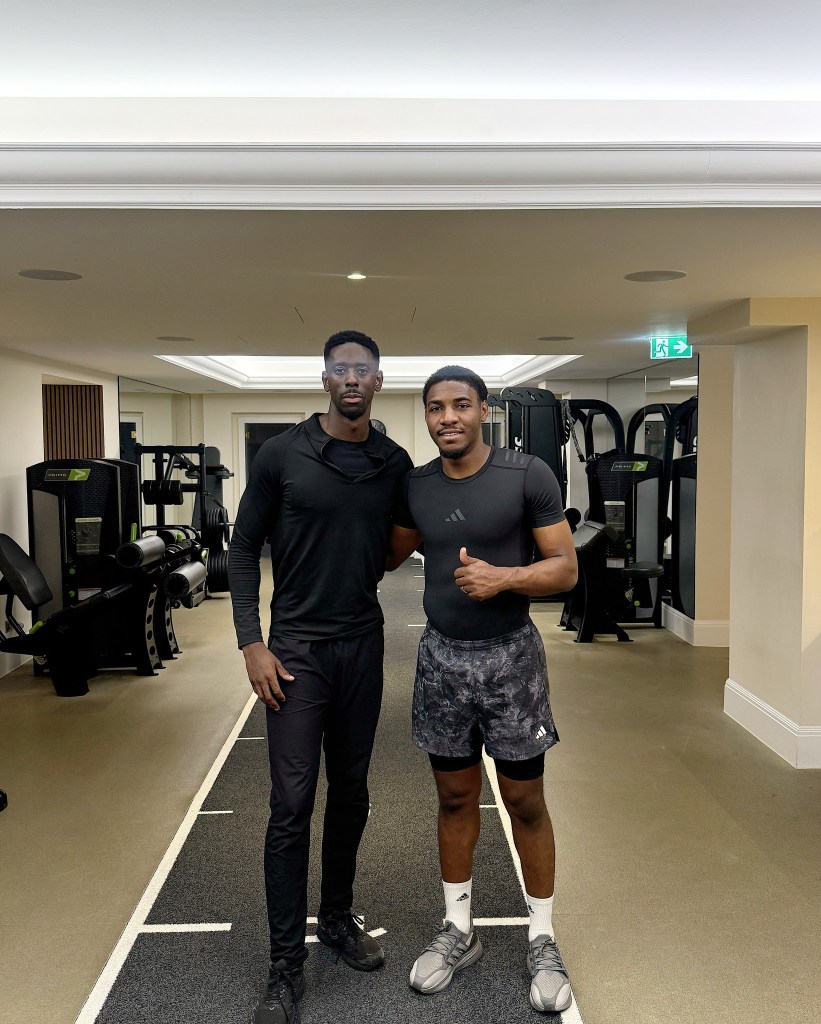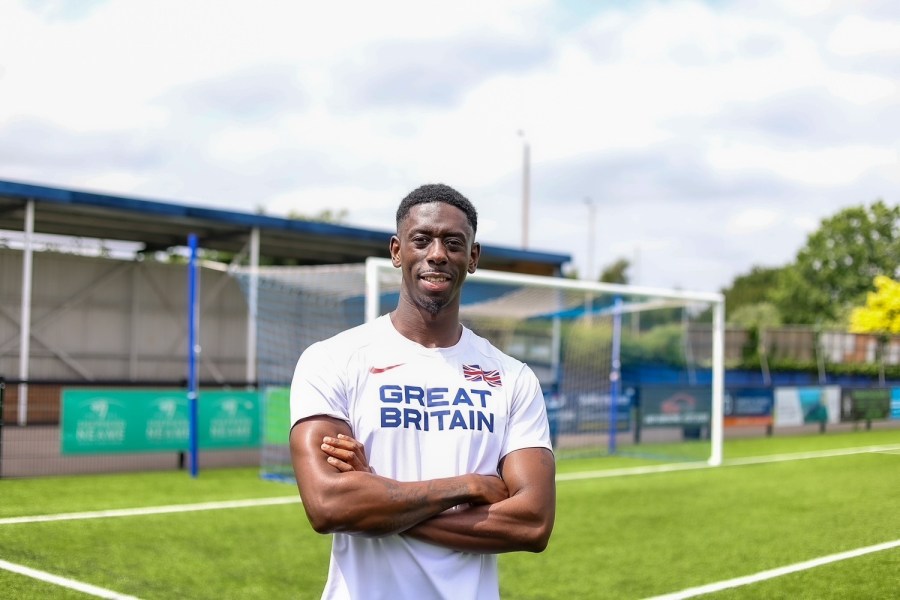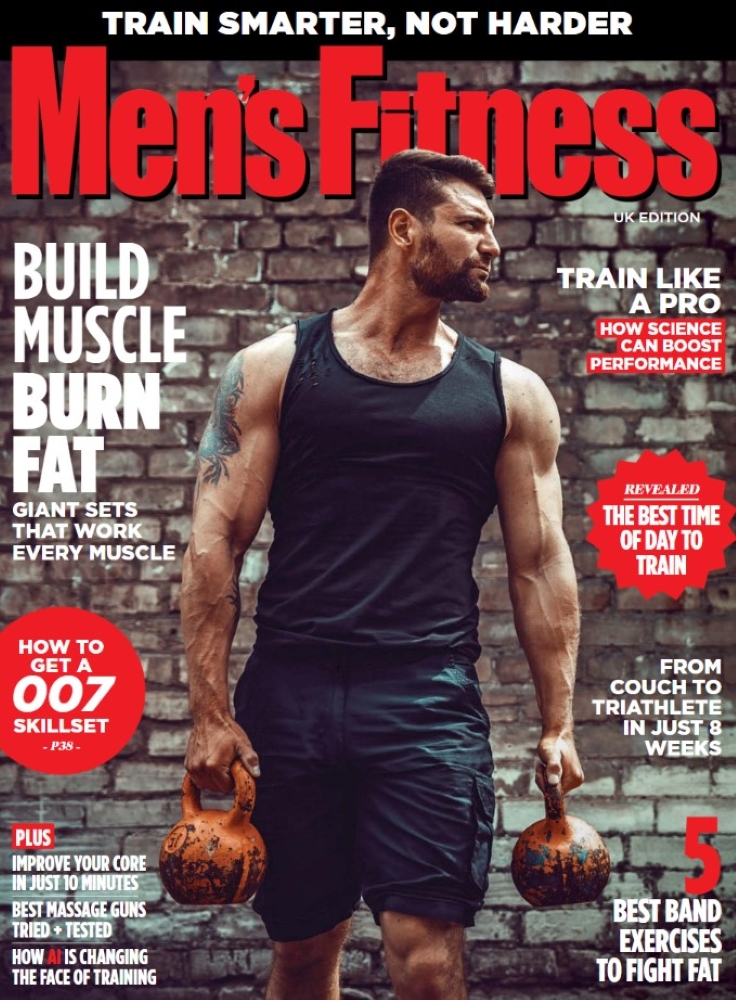Reece Prescod is taking the discipline of years of training as a pro athlete and inspiring individuals with his coaching and experience
Reece Prescod is one of Great Britain’s finest sprinters. With a personal best over 100m of 9.93, he is still the country’s fifth fastest ever over the blue-riband distance. He is also a former World Championships finalist and a bronze medal winner in the 4 x 100m relay.
He recently retired from professional athletics to focus on his personal training and sports academy. He’s still cranking out the early mornings and tough sessions but now it’s the clients who are seeing the fruits of his efforts. Don’t be fooled though – Reece is still in excellent shape! We caught up with him in London to find out what life away from the track looks like for him.
MEN’S FITNESS: What are you doing with your time now that you’ve retired?
REECE PRESCOD: Since retiring from professional athletics, I’ve poured my energy into helping others achieve their best. Based in Central London, I work with a select group of clients, offering tailored one-on-one and small group training sessions to hit goals like building strength, reshaping their bodies, or boosting performance.
At the same time, I run my sports academy, where I coach young footballers. I focus on teaching them skills like agility, coordination, speed, and endurance to shine on the pitch. Whether it’s guiding a high-profile client to a breakthrough or seeing a kid light up when they master a new move, I’m all about creating those moments of growth and success.

MF: How have you found that transition?
RP: Moving from pro athlete to coach hasn’t been a straight line. The discipline and mindset I built on the track gave me a strong foundation, but it was tough letting go of that identity as a competitor. You don’t realise how much of yourself is tied to the sport until it’s gone. What’s made it worth it is seeing my clients and kids at the academy push past their own limits. I’ve taken what I learned from years of grinding and turned it into a way to help others.
MF: Is it something that people prepare you for – or is it sink or swim?
RP: There are programs out there to help athletes transition, and they’re great for giving you some tools – like career advice or networking. But honestly, nothing prepares you for the moment you step away from the track. It’s like jumping into cold water – you just have to figure out how to swim. I leaned on my experience, the grit from years of racing, to find my way. Now, I use that to make sure my clients and kids have someone to guide them, so they don’t feel like they’re figuring it out alone.
MF: What does an ‘average’ day look like for you now?
RP: My days start early – 4 am, coffee in hand, ready to train clients in Central London. Mornings are packed with one-on-one or small group sessions, helping people hit their goals, whether it’s getting stronger or feeling better in their own skin. By 3pm, I’m either at my academy coaching kids, working on their speed or confidence, or with private clients pushing for top performance. Evenings are usually speed school with athletes. It’s a full day, but I love it.
MF: How different is that from what it used to look like?
RP: Back when I was competing, my days were all about me – early mornings, training, travel, repeat. It’s not that different now in terms of discipline, but the focus has flipped. Instead of chasing my own PBs, I’m helping others chase theirs. I used to live for the moment I crossed the finish line; now it’s about seeing a client hit a milestone or a kid score their first goal. The hustle’s the same, but it feels bigger when it’s about someone else’s win.

MF: Is the life of a pro athlete quite solitary?
RP: Yeah, it can be. You’ve got your team, but when you’re in the blocks or traveling for a meet, it’s just you and your thoughts. You’re always checking in – am I sharp, is my body ready? That alone time builds you up, but it can feel heavy. Now, as a coach, I make sure my clients and kids don’t feel that isolation. I create a vibe where they’re supported, whether it’s pushing through a session or a young athlete learning to trust their speed.
MF: You used to be judged on performance: now it’s on other people’s results. Which do you prefer and why?
RP: I love coaching way more. When it was just me, a bad day or a rough track could throw things off, and you can’t control that. Now, I’m the one setting the stage – building plans, tweaking sessions, making sure my clients and kids have what they need to succeed. Seeing a client transform their body or a kid light up because they ran faster – that hits deeper than any personal win. It’s about making a real difference.
MF: What would you say your best athletic performance was?
RP: Two moments stand out. Running 6.49 in the 60m Then there’s the silver at the 2018 European Championships, followed by a 9.93 PB. Those races were proof of years of work paying off. I tell my kids at the academy about those days to show them what’s possible when you stay focused and put in the effort.
MF: And the one you’re most proud of (and why?)
RP: The 9.93 and the world bronze at the World Relay Championships – that’s the one I hold closest. It wasn’t just the time; it was the grind, the pressure, and coming through when it counted. I share that with my young athletes to fire them up, to show them that hard work can take you to places you didn’t think possible.
MF: How do you see technology changing in the fitness space?
RP: The fitness world is evolving fast, and technology’s a big part of it. Tools like Whoop and Oura rings give clients real-time insights into their performance and recovery, which is huge for tailoring programs. Run clubs and fitness challenges are popping off, bringing people together.
As an EMS-certified trainer, I blend cutting-edge tech like electrical muscle stimulation with proven strength methods to deliver results that stand out. For my clients, it’s about precision and efficiency; for my kids, it’s about using tech to make training fun and keep them engaged in a supportive environment.
MF: What’s the best piece of fitness advice you’ve been given?
Mix it up, stay consistent, and take care of the basics. A good program needs variety – strength, speed, mobility – and you’ve got to show up at least 80% of the time. Sleep, nutrition, and recovery are non-negotiable.
But the real game-changer? Keep a positive mindset and stay committed to growing. I pass this on to my clients and especially my kids at the academy, teaching them to love the process and see fitness as a way to build confidence and character.
MF: What does the future look like for Reece Prescod?
RP: I’m focused on growing my sports academy across the UK and beyond, creating a space where kids from all walks of life can discover their potential through sport. I want every young athlete to feel supported and inspired to be their best.
At the same time, I’m committed to becoming a world-class strength and conditioning coach, delivering transformative results for clients who value expertise and dedication. I also plan to dive deeper into charity work and collaborate with government initiatives to build stronger sports programs for kids, ensuring every child has a chance to thrive through fitness and teamwork.
• If you want to benefits from Reece’s experience, you can contact him on WhatsApp at 07956566639 or prescodglobal@protonmail.com







